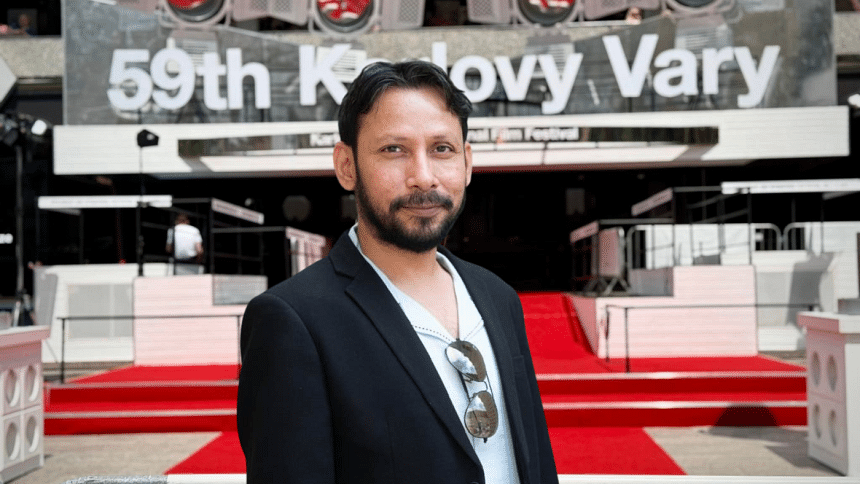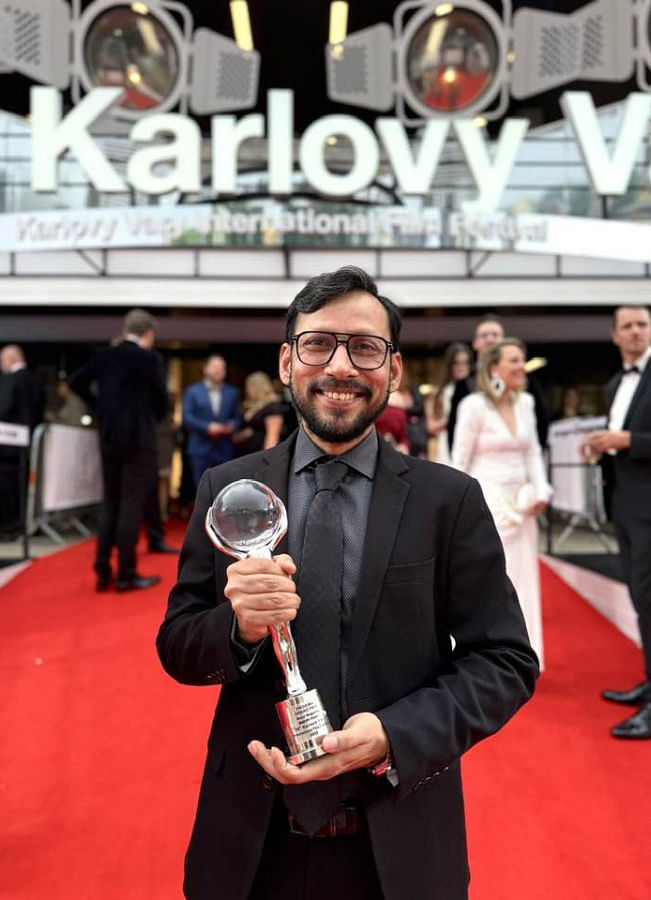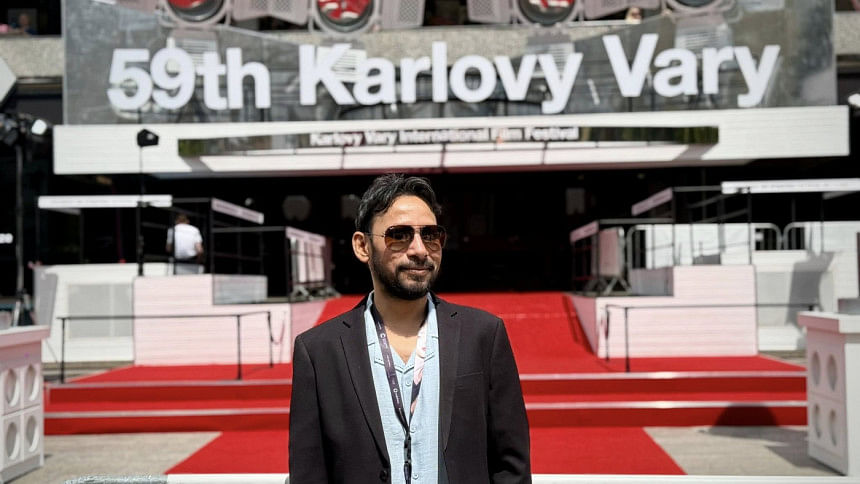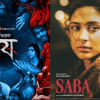I was excited to work with Mahde: Mostafa Monwar

Mahde Hasan's debut feature "Balur Nagorite", internationally titled "Sand City", has won the prestigious Proxima Grand Prix at the 59th Karlovy Vary International Film Festival—marking another proud achievement for the country. The film stars Mostafa Monwar and Victoria Chakma in lead roles, with Monwar portraying the character of Hasan. Speaking to The Daily Star from the festival, the actor shared his reactions, insights into the filmmaking process, and behind-the-scenes stories.
Let's start with your first reaction — what drew you to the script of 'Sand City'?
Back in 2018, while I was working on Rubaiyat Hossain's film 'Shimu', I first met Mahde Hasan on set. During our conversations, he mentioned that he was planning to make a film. He shared the idea with me—a story built around two parallel characters whose journeys, though separate, mirror each other in a deeply metaphorical way. Sand, he said, would serve as a powerful narrative element, subtly binding their worlds together.
Mahde's storytelling was riveting, and I couldn't say no. I was immediately drawn to the story, particularly the character of Hasan, who works in a glass factory. At first glance, he appears peculiar and unconventional, but beneath that odd exterior lies a deeply complex individual, shaped by darkness and inner turmoil. What fascinated me even more was Hasan's childlike side — a vulnerability that surfaces when he's under extreme mental pressure. It's a rare and layered role, and portraying such a character is both challenging and incredibly rewarding for an actor.
'Sand City' won big at Karlovy Vary. How does it feel to have a Bangladeshi film recognised on such a global scale?
This festival is not commercial; it caters to passionate cinephiles, especially those who appreciate independent films. As one of the oldest film festivals in the world, established just after World War II, it holds a special place in the central and eastern European region. It's a proud moment that Bangladeshi films, after receiving acclaim at Cannes and many other prestigious festivals, are now reaching new regions and connecting with fresh audiences.

How did it feel to receive the highest-ranked prize at the festival?
There's actually a funny story behind this. I asked Mahde if we were going to win any prize, and he said no—if there was, the festival team would have given us a hint. We arrived on July 6 and stayed in Karlovy Vary until July 10 before heading to Prague. Mahde planned to visit London afterward, and I was set to go to Switzerland. We were simply happy that our film had been selected and figured the festival was over, so we carried on with our plans. While visiting Friedhof Praha (Franz Kafka's grave), we suddenly got a call from the festival asking us to return immediately. By then, Victoria and our sound engineer had already gone back to Bangladesh. The festival covered all the travel expenses and arranged a car for us. At the award ceremony, we were stunned to learn we had won the top prize. It's a moment we'll never forget.

Your character, Hasan, navigates survival, desire, and alienation. How did you prepare for the role?
Mahde and I spent a great deal of time delving into the story—examining Hasan's psychological patterns, his surroundings, and what drives his behaviour. We explored how Mahde envisioned the character and how Hasan perceives the world around him. For six months, every weekend, we'd ride through the city on Mahde's Vespa, visiting potential shooting locations. Those rides weren't just scouting trips—they became part of my process. Through them, I gradually began to inhabit Hasan's world and slip into his character.
Hasan gets fired from his job at a glass factory for stealing sand, with which he wants to build his own glasshouse. He, at one point, becomes obsessed with this desire, thus isolating him from his surroundings and sense of self.

The film's connection to sand is beautifully woven into the narrative—both material and metaphor; a detail highlighted in several international reviews. What did 'sand' come to mean to you by the end of the shoot?
To many, it is time; however, for me, it represents instability, that nothing in life is stable.
Hasan's story unfolds alongside Emma's (Victoria Chakma), who also interacts with sand—used as cat litter, but in a very different context. Sand acts as a metaphor for the fragile, shifting nature of city life, capable of shaping or breaking people.
Hasan navigates silence with ease, and the film uses long, quiet stretches to let viewers interpret his inner turmoil. At its heart, the film explores how the chaos of city life breeds isolation and makes connections difficult.

Were there any scenes particularly tough to shoot, physically or emotionally?
There are a couple of moments like that. One scene shows Hasan carrying a sack of sand on his back. Usually, we use lighter materials inside the sack and rely on the performance to offset the weight. But this time, we used an actual heavy sack of sand, and carrying it was genuinely difficult.
When are you returning, and what's next audience can look forward to?
I'll be returning on July 17. Meanwhile, my film "Saba" is set for release, and I'm currently in discussions for several new projects, including one in India.

 For all latest news, follow The Daily Star's Google News channel.
For all latest news, follow The Daily Star's Google News channel. 









Comments